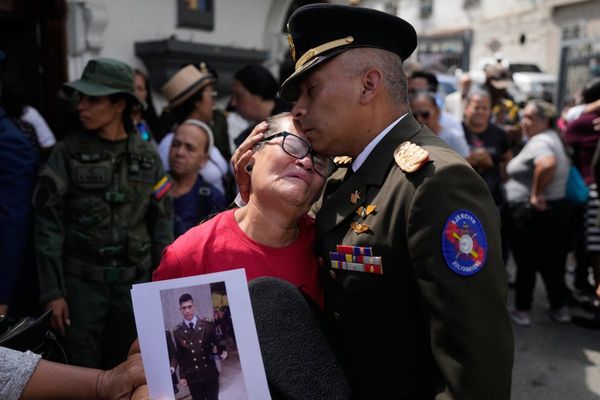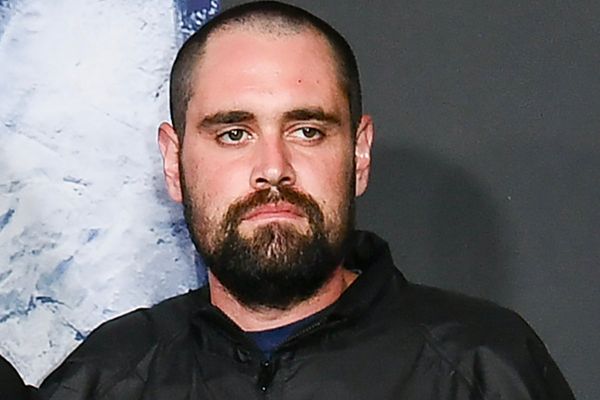
At least 14 Palestinians, including two children, have died from hunger and malnutrition in Gaza, according to health authorities, as United States President Donald Trump says there are signs of “real starvation” in the besieged territory.
The deaths pushed the number of those who have died from malnutrition since Israel launched its war on Gaza in October 2023, to 147, including 88 children, the Ministry of Health in Gaza said on Monday.
Most of the deaths have occurred in recent weeks as a hunger crisis gripped the territory due to Israel’s severe restrictions on the entry of humanitarian aid.
Israel imposed a total blockade on the territory in March, which was partially lifted in May. But only a trickle of aid has been allowed to enter since then, despite warnings from the United Nations and aid organisations of mass starvation.
‘Walking corpses’
The head of the United Nations agency for Palestinian refugees, UNRWA, said on Monday that his staff based in Gaza have described people enduring the starvation crisis as “neither dead nor alive – walking corpses”.
Speaking at a UN conference on the Israeli-Palestinian conflict, Philippe Lazzarini said that words of “outrage and condemnation are no longer adequate for what is unfolding”.
“There must be immediate action to impose a long-overdue ceasefire, to reverse deepening starvation, and to release every hostage… Once a ceasefire is in place, a massive scale-up of humanitarian assistance can be enabled by UNRWA’s large workforce,” Lazzarini said.
Earlier on Monday, US President Trump said many people were starving in Gaza and that Israel “has a lot of responsibility” for the situation in the territory.
Describing starvation as “real”, Trump’s comments put him at odds with Israeli Prime Minister Benjamin Netanyahu, who said on Sunday that “there is no starvation in Gaza”, and promised to fight on against the Palestinian group Hamas, which governs Gaza.
However, in a post on X on Monday, Netanyahu described the situation in Gaza as “difficult”, saying that Israel is working to ensure aid deliveries to the besieged Strip.
“Israel will continue to work with international agencies as well as the US and European nations to ensure that large amounts of humanitarian aid flows into the Gaza Strip,” Netanyahu said.
Trump, speaking during a visit to Scotland, said that a lot of people could be saved. “You have a lot of starving people,” he said.
“We’re going to set up food centres”, with no fences or boundaries to ease access, Trump said, adding that the US would work with other countries to provide more humanitarian assistance to the people of Gaza, including food and sanitation.
The comments come after the Israeli military said it would pause attacks in some parts of Gaza and authorised new corridors for humanitarian deliveries to increase the flow of badly needed aid.
The decision was welcomed by the UN, but the organisation’s humanitarian chief said the deliveries need to be scaled up.
Reporting from Deir el-Balah, Al Jazeera’s Tareq Abu Azzoum said: “What Israel describes as ‘humanitarian pauses’ are, in fact, limited and seen as unilateral suspensions of military activities that usually last for a few hours and are confined to select areas,” Abu Azzoum said.
“These pauses, as we have seen, lack international oversight or any sort of coordination with humanitarian agencies,” he said.
Baby formula shortage
The dire conditions in Gaza have fuelled growing international criticism of Israel’s conduct in its war, as international aid groups warn that the territory’s 2.3 million residents are facing mass starvation.
The Gaza Health Ministry on Monday said 14 people died of starvation and malnutrition in the past 24 hours. A medical source at al-Shifa Hospital in Gaza City told Al Jazeera that an infant named Muhammad Ibrahim Adas died from malnutrition due to a shortage of baby formula.
Gaza’s Government Media Office said an extreme shortage of baby formula could cause tens of thousands of malnourished infants like Muhammad to slowly die.
“There are over 40,000 infants under one year old in Gaza currently at risk of slow death due to this brutal and suffocating blockade,” the office said on Monday, accusing Israel of blocking entry of the product for 150 days.
“We urgently demand the immediate and unconditional opening of all crossings and the swift entry of baby formula and humanitarian aid,” it continued.
As more aid trucks entered Gaza on Monday through the Karem Abu Salem crossing (Kerem Shalom in Hebrew) and the Zikim road in the north, “devastated Palestinians jumped on these trucks and took whatever they had”, Al Jazeera’s Hind Khoudary said, reporting from Deir el-Balah in central Gaza.
“When asked why they jumped on the trucks, the Palestinians said they did not have time to wait for the food. They said their children have been starving for days, and they do not have any other option than jumping on these trucks,” Khoudary said.
“This shows how desperate Palestinians are and how they were deprived of their basic necessities. Now we are expecting more trucks to enter today.”
‘A drop in the ocean’
Israel’s decision to allow more aid into Gaza has been welcomed by the UN, but officials warned that severe restrictions continued to block lifesaving deliveries.
“This is a welcome step in the right direction,” Tom Fletcher, the UN undersecretary-general for humanitarian affairs, told Al Jazeera.
“But clearly, we need to get in vast amounts of aid at a much, much greater scale than we’ve been able to do so far.”
Fletcher said deliveries overall have been just “a drop in the ocean” of what is needed.
“We can’t just simply turn up and drive through. That’s what we should be allowed to do, that’s what international law demands, but we’re not yet at that point,” he said, citing ongoing security risks, closed crossings, visa rejections and customs delays.
As the hunger crisis deepens, Israeli forces have continued to launch attacks across Gaza, killing at least 88 Palestinians on Monday, including 40 who were seeking aid, medical sources told Al Jazeera.
More than 1,000 Palestinians seeking aid have been killed by Israeli forces near distribution sites run by the US- and Israeli-backed Gaza Humanitarian Foundation (GHF), which launched operations in late May.
The GHF has been heavily criticised by the UN and other humanitarian organisations for failing to provide enough aid and for the dire security situation at and around its aid distribution sites.







